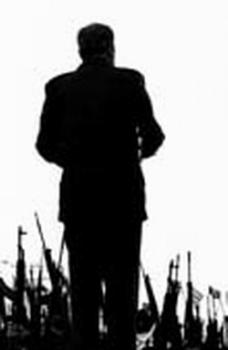Cuban book: "Fidel Castro: My Life" By Ignacio Ramonet
- Submitted by: admin
- Arts and Culture
- Literature
- Politics and Government
- 01 / 27 / 2008

In the winter of his life, and with his political future unclear, Fidel Castro's personal musings on subjects from the Cuban Missile Crisis to his successor are now accessible to Americans in a new English version of more than 100 hours of transcripts from interviews he gave before falling ill in mid 2006.
"Fidel Castro: My Life" is an undiluted look into the mind of the 81-year-old Cuban leader at a critical point in the communist-run island's history; Cuba's parliament in late February will reveal whether Castro will remain as president or retire.
Translated into English by Andrew Hurley, the highly sympathetic "spoken biography" sprang from multiple interviews Castro gave over two years - before getting sick - to Ignacio Ramonet, editor of Le Monde diplomatique.
The first edition of the book was published in Spain as "Fidel Castro, Biografia a Dos Voces," and an earlier English version of the book was published in Great Britain by Allen Lane, of Penguin Books Ltd.
Written in a question-and-answer style, Castro tells of growing up on a rustic homestead, his Jesuit education and the revolutionary fight that propelled him to power almost 50 years ago. He talks about Argentine revolutionary Ernesto (Che) Guevara, and his younger brother Raul, the designated successor leading Cuba's caretaker government during his convalescence.
Castro weighs in on Cuba's use of capital punishment, past treatment of gays and dissidents, and relations with 10 American presidencies.
He also opines on world leaders met during his near half-century in power, including Pope John Paul II, Mikhail Gorbachev, and Mao Zedong. And he analyzes world events, saying the Soviet Union "should have repaired itself and never destroyed itself," while communist China is "a great power that held to certain fundamental principles, that sought unity, that didn't fragment its forces."
The book's detailed notes and chronology make it easy to look up Castro's views on various subjects and events, and will surely become a must-have for Cuba scholars.
But it disappoints on Castro's highly guarded personal life.
Ramonet says in his introduction that no subject was off-limits during interviews conducted from early 2003 until December 2005, but he says it "never crossed my mind" to ask Castro about his private life, including the current wife and their five sons of whom few Cubans are even aware.
After Castro underwent intestinal surgery and provisionally ceded power to his brother on July 31, 2006, he spent the early part of his recovery correcting and expanding his responses.
While many journalists would cringe at an interview subject editing their own comments, Ramonet says the changes "enriched the book enormously."
The key additions were Castro's expanded remembrances of his mother, letters he exchanged with Nikita Khrushchev during the 1962 missile crisis, his actions during the short-lived 2002 coup against Venezuelan President Hugo Chavez and two 1991 letters he sent to Saddam Hussein urging him to withdraw from Kuwait during the Gulf War.
Castro also ponders Cuba's future. He notes that the United States failed to crush his government with decades of hostility and a trade embargo, and warns that if Cuba does not wipe out systemic corruption, "This Revolution can destroy itself ... and we would be to blame."
"Fidel Castro: My Life"
By Ignacio Ramonet and Fidel Castro (Scribner)
Source: Canadian Press
Comments